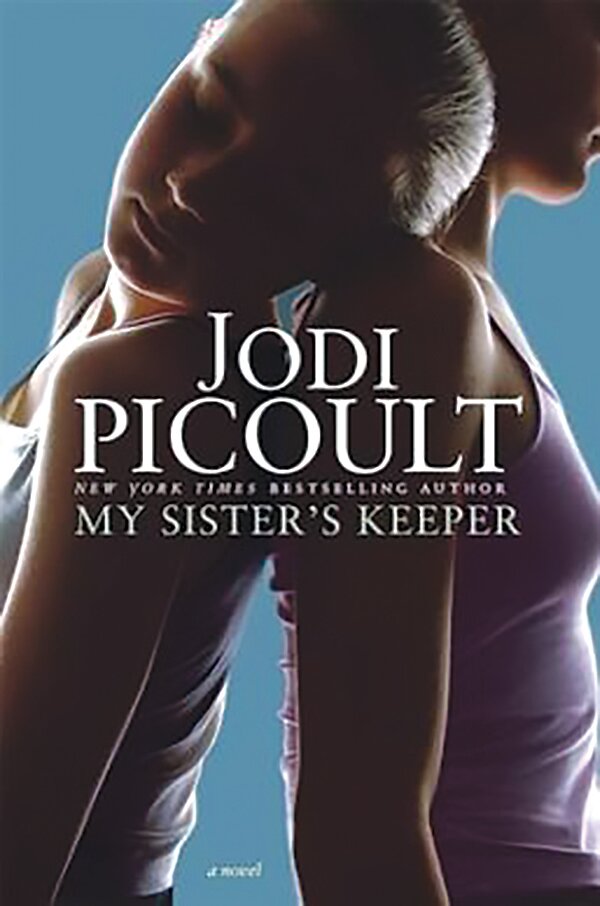A heart-rending story a family facing moral dilemmas
“My Sister’s Keeper” is a most intriguing and heart-rending story regarding a moral dilemma faced by parents Brian and Sara Fitzgerald, who might have remained a normal functioning family if not for the illness of their 3-year-old daughter, Kate, who is stricken with an aggressive form of leukemia.
This item is available in full to subscribers.
Please log in to continue |
Register to post eventsIf you'd like to post an event to our calendar, you can create a free account by clicking here. Note that free accounts do not have access to our subscriber-only content. |
Day pass subscribers
Are you a day pass subscriber who needs to log in? Click here to continue.
A heart-rending story a family facing moral dilemmas
‘My Sister’s Keeper’, By Jodi Picoult
“My Sister’s Keeper” is a most intriguing and heart-rending story regarding a moral dilemma faced by parents Brian and Sara Fitzgerald, who might have remained a normal functioning family if not for the illness of their 3-year-old daughter, Kate, who is stricken with an aggressive form of leukemia.
From that point on, all attention of both parents is focused on efforts to make her well. Everything centers on their beloved ill child, although they have a younger son Jesse, who early on finds himself lost in their despair and frenzy to find medical treatments that might effect a remission for their daughter. Most of their time is consumed by meetings with doctors, researching experimental cures, and constant hospital admissions.
In her desperation to save her daughter, Sara consults with geneticists regarding having another child who would be “designed” for a donor match, since son Jesse does not qualify. When she gives birth to Anna, Kate feels hopeful about the possibilities for her older daughter. For 13 years, each time Kate relapses, little Anna must undergo extremely painful and frightening medical procedures, including the transfer of stem cells from Anna to Kate, the first just weeks after Anna’s birth.
Dad Brian became a firefighter in hopes of saving lives and is devastated that he can do nothing for his very sick child. As a result, both parents pin all their hopes on Anna, who feels an onerous responsibility for her sister’s well-being. Although both parents declare that they love their children equally, it does not feel that way to either Jesse or Anna, whose needs and desires are often overlooked. Kate’s health is the priority, and her siblings feel guilty about needing attention themselves.
Left much on his own, unsupervised by his harried folks, Jesse is becoming a delinquent, though no one seems to notice nor has the energy to deal with his errant behavior. Anna feels she only exists as a non-entity except for using her to keep her sister alive – that the “only reason she was born was as a harvest crop for Kate.” Finally, she is so overwrought that she takes whatever little money she has saved and sells a precious locket to hire a lawyer to sue for “medical emancipation,” the rights to her own body.
The story is replete with intense conflict, primarily the overwhelming guilt Anna experiences knowing that without her assistance, Kate may well die.
However, when her parents decide, without her consent, that it is necessary for Anna to donate one of her kidneys to her sister, the young teen feels she has endured as much pain and suffering as she can tolerate. Such an organ donation might also jeopardize her own health and future.
Picoult skillfully prods the reader to consider and contemplate the complexity of such ethical decisions. What led her to develop this plot was the fact that she herself is the mother of a child who underwent ten surgeries in three years. As a result, she is familiar with serious illness, hospital wards, catheters, ports, and health care providers and insurers, which is why so much of this comes across as very real.
Also of interest is that she chose to set the story in Providence, R.I., and utilizes many locations familiar to us: Newport, Blackstone Boulevard, the Wheeler School, Café Nuovo, URI, Garrahy Law Complex, ProJo.
This may be the best of Picoult’s novels, as it is packed with emotion, especially the angst of conflicting feelings among all the characters as they struggle with life and death decisions. Some of the scenes will tug at your heart strings, and the tension and suspense heighten as Kate and her family face the roller coaster ride of remissions followed by agonizing relapses.
The court room scene in which the court appointed guardian ad litem pleads for an end to the physical and psychological stress Anna has endured is not only enlightening regarding the legality of a parent’s right to make decisions for a minor child, but also the most dramatic part of the book. At the end will be a revelation that surprises everyone.
Donna Bruno is a prizewinning author and poet recently recognized with four awards by National League of American Pen Women.






